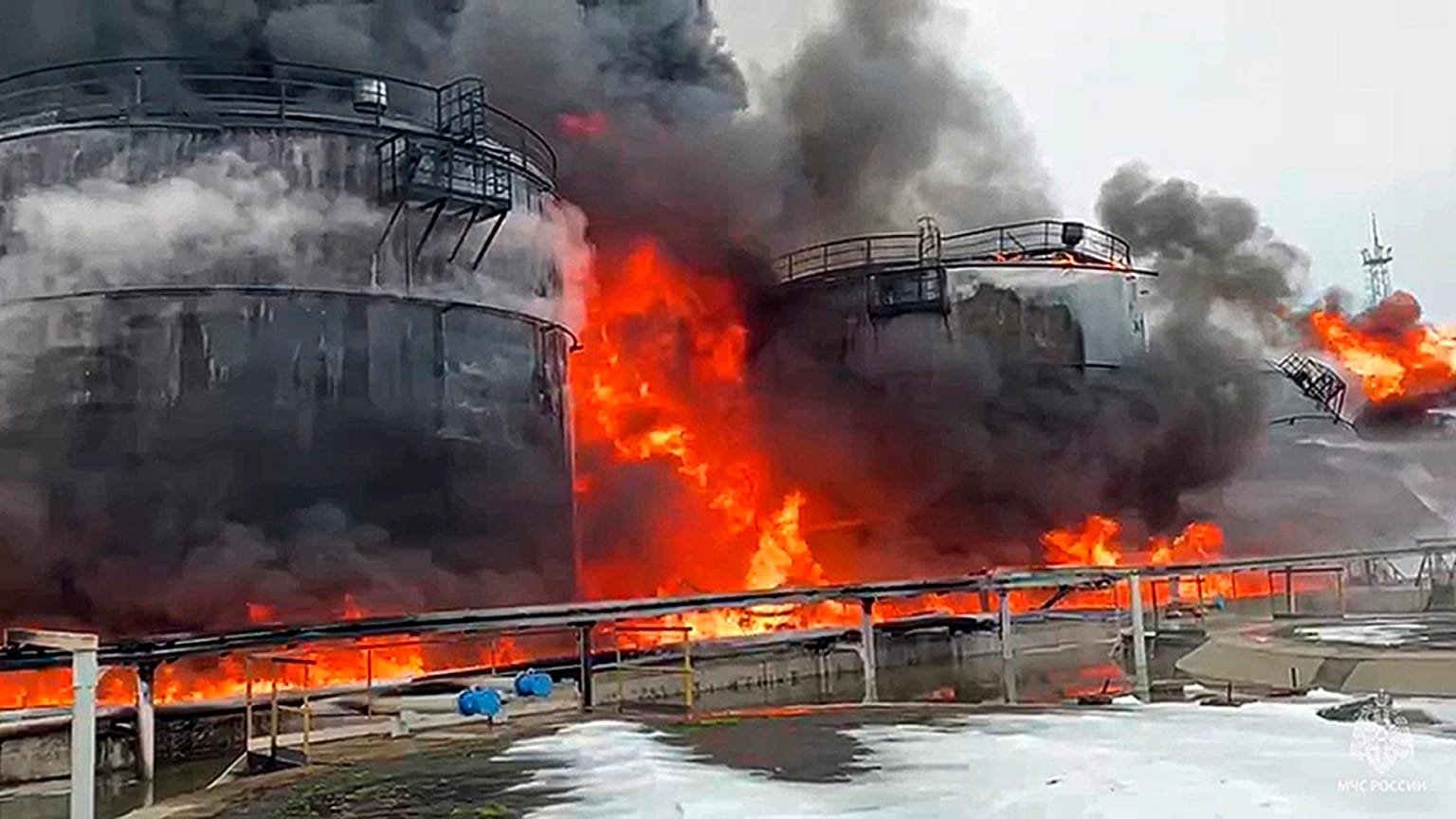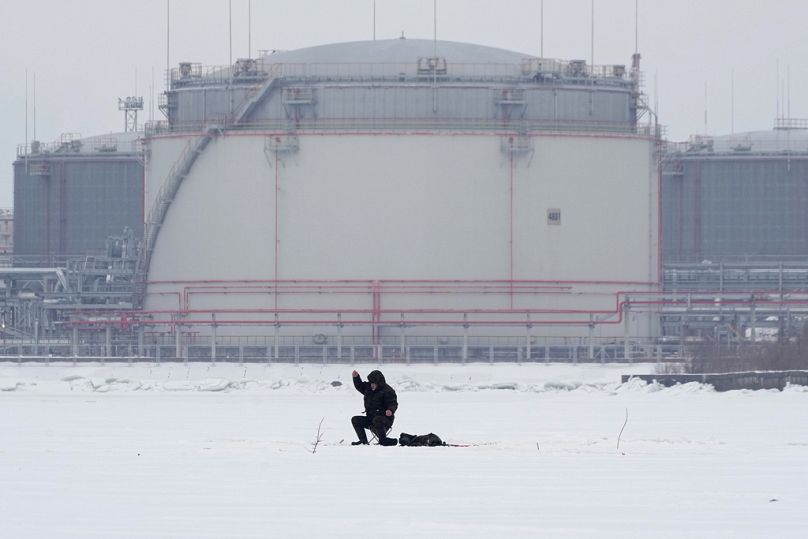Drone strikes on Russian oil refineries and their economic impact have become one of the more successful Ukrainian campaigns.
Last year was marked by widespread optimism for the Ukrainian war effort, while this year is the exact opposite, as dark pessimism looms over the information landscape. As some believe, both views were - and are - exaggerated.
 ADVERTISEMENT
ADVERTISEMENT
 ADVERTISEMENT
ADVERTISEMENT
Judging by the current trend of the war, Russia might have gained the upper hand. While this general trend may be reversed by re-establishing US aid to Ukraine, drone strikes on Russian oil refineries and their economic impact have become one of the more successful Ukrainian campaigns.
As the war in Ukraine continues past the two-year mark, the intensity of the armed conflict between Moscow and Kyiv isn't letting up. While Russia is increasing its bombing runs of the Ukrainian frontlines and rocket attacks on the country’s energy grid, Ukraine has focused on drone attacks on the Russian oil refineries and its Black Sea Fleet. Both have their separate economic impacts.
Ukraine takes drone attacks to Russia
Starting from January and up to the end of March, the Ukrainian armed forces launched 23 attacks on Russian oil refineries and storage facilities. Washington hasn't been supportive of attacks, as they go against the general strategy of the Biden administration that Ukraine shouldn't bring the war to Russian soil.
However, as Ukrainian President Volodymyr Zelenskyy recently stated in an interview with the Washington Post: "The reaction of the US was not positive on this … We used our drones. Nobody can say to us you can’t." The US can limit the use of only those armaments it has provided to Ukraine, Zelenskyy explained, which isn't the case in the campaign against Russian oil infrastructure.
So far, Ukraine has temporarily put 16% of Russia's motor fuel production out of commission. Some hit oil refineries to varying results, the Volgograd plant, for example, has been severely damaged, and it might take approximately until the start of summer to repair according to Kommersant. Others were not seriously damaged, like the Ilsky oil refinery, which was repaired in less than a month.
Oil refineries play a crucial role in Russia's economy
Director of the International Programme at Kyiv School of Economics Elina Ribakova told Euronews: "These strikes will create a lot of damage and putting refineries back on track will be incredibly challenging. They rely on sophisticated technology and a lot of large imported components."
Russian oil refineries play a crucial role in the country's economy and its global energy presence. These refineries process crude oil into various petroleum products, including gasoline, diesel, and jet fuel, catering to both domestic consumption and international export markets.
As one of the world's largest oil producers, Russia relies heavily on its refining capacity to maintain its position in the global energy landscape.
The Ukrainian strikes on Russian oil refineries have disrupted this vital sector, causing immediate production losses and infrastructural damage. These strikes not only target Russia's economic infrastructure but also serve as a strategic move by Ukraine to retaliate against Russian aggression. As a result of the strikes, Russian refineries are facing operational challenges, leading to reduced output and supply chain disruptions.
"Since Russian import capacity for refined oil products is limited in the short run, since they're set up to export, it's actually a fairly clever way of causing disruption in the Russian market with limited impact globally," Aslak Berg, Research Fellow at the Centre for European Reform, told Euronews.
According to him, Ukraine's strategy so far has been to conduct strikes against Russian oil refineries and not Russia's crude oil production facilities or export platforms.
"The Ukrainians have been hitting refineries, not Russian crude oil production or export facilities. This causes problems for Russia's domestic market for refined products, but for the rest of the world, a decline in Russia's exports of products will be compensated for by increased exports of crude oil," Berg explained.
When US officials expressed their disagreement with this particular Ukrainian campaign, some analysts immediately surmised that this scepticism coming from Washington is tied to fears of the potential rise of gasoline and diesel prices in the US during a key election year.
Concern that US is hesitant to help Ukraine in an election year
While experts feel that the current Ukrainian campaign, if limited to Russian oil refineries, will not cause great disruptions in the global market, commodity analyst at UBS Global Wealth Management Giovanni Staunovo told Euronews: "Due to still tight global refinery capacity at the moment, other refineries outside of Russia might be limited to increase their refinery runs and compensate for disruptions in Russia.
"Some market participants don't make the distinction or are concerned that the drone attacks might also target the crude export terminals in the near future. Hence, we see also crude prices reacting," Staunovo said.
Depending on the scope of the Ukrainian drone campaign, the negative impact the strikes are incurring on the Russian internal economy, which has already curtailed exports of refined oil products starting from 1 March to meet internal demand and avoid a scenario of surging gasoline and diesel prices, might shift and impact the global market more.
Ukraine needs to be aware of potential costs to global oil market
Jens Nordvig, the founder and CEO of Exante Data, explained this potential scenario for Euronews: "If these attacks are sustained, and generate export difficulties for crude, it would be logical to assume that we can have a 5-10 added to global oil prices, both from the direct supply effect and from the additional uncertainty playing into risk premia, taking us towards 90 in Brent."
Ukraine has to find a delicate balance between the desire to inflict as much damage as possible to the Russian economy and, at the same time, plan the strikes so as to impact the global refined and crude oil market as little as possible.
While doing that, Kyiv has to pay attention to how the market reacts to its drone strikes campaign because it has the interests of its partners to consider. After all, Ukraine's very existence hinges on its diplomatic relations with its Western partners.


















